Optimized Power Flow Management and Control in EV-to-Grid Systems with Multi-Level Converters and Diverse Controllers
Problem Definition
The integration of Electric Vehicles (EVs) with the grid presents a complex challenge in power flow management. The optimization of power exchange between EV batteries and the grid requires the implementation of specialized converters and controllers. The bi-directional DC to DC boost converter and 3-level AC to DC converter are key components in achieving this optimized power flow. However, the task of balancing the charging and discharging processes of the EV battery based on power load and grid supply poses a significant hurdle.
One of the critical limitations in the current system is the management of different voltage outputs while ensuring controller efficiency.
This poses a risk of instability and inefficiency in the overall power flow management process. Furthermore, the need for seamless integration of EVs with the grid underscores the necessity for a comprehensive solution that can address these challenges effectively. The development of a more robust and optimized power flow management system for EV2 Grid Systems is crucial in meeting the demands of a rapidly evolving energy landscape.
Objective
The objective of the proposed work is to optimize power flow management for EV2 Grid Systems by integrating EV batteries with the grid using advanced control techniques. The project aims to design a system that efficiently balances the charging and discharging processes of the EV battery based on power load and grid supply. By utilizing bidirectional DC to DC boost converter, a 3-level AC to DC converter, and multiple controllers like PI, PID, and MPC, the system strives to achieve robust power flow management. The goal is to improve future power flow management strategies by monitoring and comparing the performance of these controllers and integrating EV batteries with the AC grid to promote efficient power control processes. The focus is on addressing the challenge of managing different voltage outputs effectively and enhancing the overall performance of the system in EV2 Grid Systems.
Proposed Work
The proposed work aims to address the research gap in optimizing power flow management for EV2 Grid Systems by integrating EV batteries with the grid using advanced control techniques. The project's objective is to design a system that efficiently balances the charging and discharging processes of the EV battery based on power load and grid supply. By using a bidirectional DC to DC boost converter, a 3-level AC to DC converter, and multiple controllers including PI, PID, and MPC controllers, the system aims to achieve robust power flow management. The rationale behind choosing these specific controllers lies in their ability to regulate voltage outputs effectively and ensure efficient charging and discharging processes for EV batteries. By monitoring and comparing the performance of these controllers, the project seeks to improve future power flow management strategies for EV2 Grid Systems.
The technology used in this project involves implementing a system in MATLAB that integrates EV batteries with the AC grid, promoting efficient power control processes. By utilizing advanced controllers and converters, the project will achieve seamless power exchange between EV batteries and the grid, addressing the challenge of managing different voltage outputs effectively. The approach of using a combination of controllers is crucial for ensuring optimal power flow management and enhancing the overall performance of the system. By focusing on monitoring the charging and discharging processes and quantifying controller performance, the project will provide valuable insights for improving power flow management in EV2 Grid Systems. The decision to use MATLAB for this project stems from its versatility in implementing complex control algorithms and analyzing system performance efficiently.
Application Area for Industry
This project has applications in various industrial sectors such as automotive, energy, and electrical engineering. In the automotive industry, the optimized power flow management system can be integrated into Electric Vehicle (EV) charging infrastructures to ensure efficient charging and discharging processes. This solution addresses the challenge of balancing power load and grid supply, which is crucial for maximizing the utilization of renewable energy sources in the energy sector. Additionally, the system's ability to manage different voltage outputs efficiently makes it applicable in electrical engineering industries for enhancing power flow control.
The proposed solutions within different industrial domains offer benefits such as improved energy efficiency, reduced power wastage, and optimized utilization of EV batteries.
By integrating the EV battery with the grid using bidirectional converters and advanced controllers, industries can achieve seamless power exchange and enhance overall system performance. Moreover, the application of PI, PID, and MPC controllers ensures robust power flow management, leading to increased reliability and stability in power distribution systems across various sectors. Overall, the implementation of this project's solutions can result in cost savings, environmental sustainability, and enhanced operational efficiency for industries utilizing EV2 Grid Systems.
Application Area for Academics
The proposed project on optimized power flow management for EV2 Grid Systems has the potential to enrich academic research, education, and training in the field of electrical engineering and renewable energy. This project offers a practical application of integrating Electric Vehicle (EV) batteries with the grid, providing a hands-on approach to understanding power exchange and management in real-world scenarios.
In academic research, this project can contribute to innovative research methods by exploring the efficiency and performance of different controllers (PI, PID, MPC) in managing power flow in grid-connected EV systems. The data analysis and simulations conducted in this project can provide valuable insights for researchers looking to optimize power flow management in renewable energy systems.
For education and training, this project offers a practical and interactive way for students to learn about power electronics, control systems, and renewable energy integration.
By working with MATLAB software and implementing different algorithms such as PID and MPC, students can gain valuable experience in designing and analyzing power systems.
MTech students and PhD scholars can benefit from the code and literature of this project by using it as a reference for their own research work in the field of power electronics and renewable energy. They can further explore the application of different controllers and algorithms in optimizing power flow and grid integration for EV systems.
In the future, this project has the potential for further scope in exploring advanced control strategies, integrating renewable energy sources, and implementing smart grid technologies. By expanding on the research conducted in this project, researchers can continue to push the boundaries of power flow management in EV2 Grid Systems, leading to more efficient and sustainable energy solutions.
Algorithms Used
The project utilizes Proportional-Integral-Derivative (PID), Model Predictive Control (MPC), and Proportional-Integral (PI) algorithms to manage power flow in grid-connected EV systems. The PID and PI techniques focus on adjusting the system to achieve a desired output efficiently, while MPC enhances the system's responsiveness to unforeseen changes. These algorithms work together to ensure robust power flow management, integrating the EV battery with the AC grid using converters to control charging and discharging processes based on power load. The performance of the controllers is evaluated for managing different voltage outputs, informing potential improvements in power flow management.
Keywords
Optimized Power Flow, EV2 Grid System, 3-level AC to DC converter, DC to DC boost converter, Proportional-Integral-Derivative (PID) techniques, Model Predictive Control (MPC), Proportional-Integral (PI), MATLAB, Bi-directional Converter, AC Grid Integration, Charging and Discharging, Battery Management, Electric Vehicle battery, Power Load, Controller Performance, Power Exchange, Power Control, Voltage Outputs, Power Flow Management, Efficiency Optimization, Energy Management, Grid System Integration, Electric Vehicle Technology, Power Conversion, Control Strategies, Energy Storage, Renewable Energy Integration, Smart Grid Solutions.
SEO Tags
Optimized Power Flow, EV2 Grid System, 3-level AC to DC converter, DC to DC boost converter, PID techniques, Model Predictive Control, PI controller, MATLAB, Bi-directional Converter, AC Grid Integration, Charging and Discharging, Battery Management, Electric Vehicle battery, Power Load, Controller Performance, Power Flow Management, EV Battery Integration, Voltage Regulation, System Efficiency, Power Exchange, Energy Storage, Electric Vehicle Technology, Grid Integration Strategies, Control System Design, Renewable Energy Integration, Energy Management System, Power Electronics, Research Project, PHD Research, MTech Project.
| Shipping Cost |
|
No reviews found!














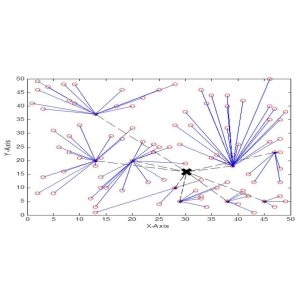
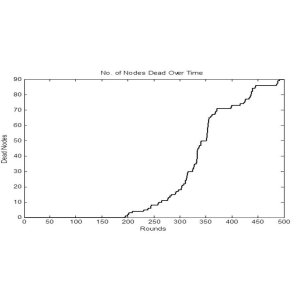

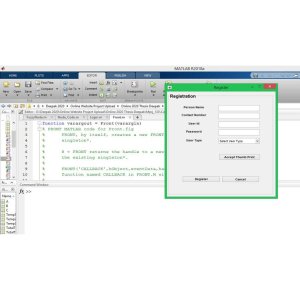
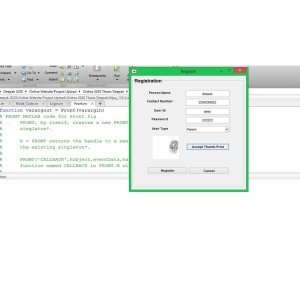
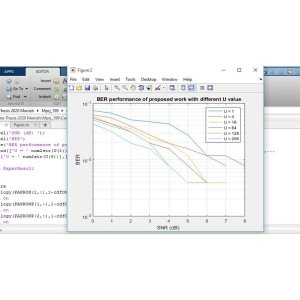
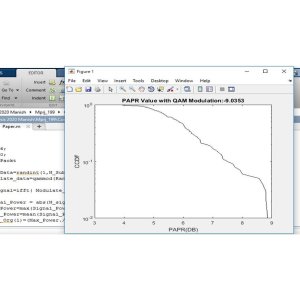































No comments found for this product. Be the first to comment!